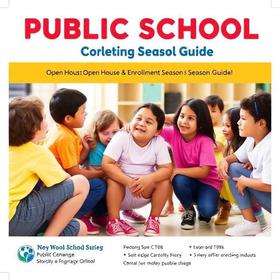For the 2025-26 school year, there are 7 public preschools serving 2,587 students in 28304, NC.
The top-ranked public preschools in 28304, NC are Sherwood Park Elementary School, Mary Mcarthur Elementary School and J W Coon Elementary School. Overall testing rank is based on a school's combined math and reading proficiency test score ranking.
Public preschools in zipcode 28304 have an average math proficiency score of 43% (versus the North Carolina public pre school average of 51%), and reading proficiency score of 37% (versus the 46% statewide average). Pre schools in 28304, NC have an average ranking of 4/10, which is in the bottom 50% of North Carolina public pre schools.
Minority enrollment is 86% of the student body (majority Black), which is more than the North Carolina public preschool average of 59% (majority Black and Hispanic).
Best 28304, NC Public Preschools (2025-26)
School
(Math and Reading Proficiency)
(Math and Reading Proficiency)
Location
Quick Facts
Rank: #11.
Sherwood Park Elementary School
(Math: 50-54% | Reading: 40-44%)
Rank:
Rank:
5/
Bottom 50%10
2115 Hope Mills Road
Fayetteville, NC 28304
(910) 424-4797
Fayetteville, NC 28304
(910) 424-4797
Gr: PK-5 | 327 students Student-teacher ratio: 11:1 Minority enrollment: 80%
Rank: #22.
Mary Mcarthur Elementary School
(Math: 45-49% | Reading: 35-39%)
Rank:
Rank:
4/
Bottom 50%10
3809 Village Drive
Fayetteville, NC 28304
(910) 424-2206
Fayetteville, NC 28304
(910) 424-2206
Gr: PK-5 | 424 students Student-teacher ratio: 12:1 Minority enrollment: 83%
Rank: #33.
J W Coon Elementary School
(Math: 40-44% | Reading: 35-39%)
Rank:
Rank:
4/
Bottom 50%10
905 Hope Mills Road
Fayetteville, NC 28304
(910) 425-6141
Fayetteville, NC 28304
(910) 425-6141
Gr: PK-5 | 207 students Student-teacher ratio: 10:1 Minority enrollment: 84%
Rank: #44.
Brentwood Elementary School
(Math: 43% | Reading: 35%)
Rank:
Rank:
3/
Bottom 50%10
1115 Bingham Drive
Fayetteville, NC 28304
(910) 864-5310
Fayetteville, NC 28304
(910) 864-5310
Gr: PK-5 | 502 students Student-teacher ratio: 13:1 Minority enrollment: 90%
Rank: #55.
William H Owen Elementary School
(Math: 37% | Reading: 39%)
Rank:
Rank:
3/
Bottom 50%10
4533 Raeford Road
Fayetteville, NC 28304
(910) 425-6163
Fayetteville, NC 28304
(910) 425-6163
Gr: PK-5 | 408 students Student-teacher ratio: 12:1 Minority enrollment: 91%
Rank: #66.
Loyd E Auman Elementary School
(Math: 39% | Reading: 35%)
Rank:
Rank:
3/
Bottom 50%10
6882 Raeford Road
Fayetteville, NC 28304
(910) 868-8153
Fayetteville, NC 28304
(910) 868-8153
Gr: PK-5 | 488 students Student-teacher ratio: 13:1 Minority enrollment: 89%
Rank: n/an/a
2915 Skycrest Drive
Fayetteville, NC 28304
(910) 484-9031
Fayetteville, NC 28304
(910) 484-9031
Gr: PK-2 | 231 students Student-teacher ratio: 12:1 Minority enrollment: 80%
28304, North Carolina Public Schools (Closed)
School
Location
Quick Facts
Cumberland Evening Academy (Closed 2010)
Alternative School
1624 Ireland Drive
Fayetteville, NC 28304
(910) 484-8121
Fayetteville, NC 28304
(910) 484-8121
Gr: 9-12 | 177 students Minority enrollment: 45%
Frequently Asked Questions
What are the top-ranked public preschools in 28304, NC?
The top-ranked public preschools in 28304, NC include Sherwood Park Elementary School, Mary Mcarthur Elementary School and J W Coon Elementary School.
How many public preschools are located in 28304?
7 public preschools are located in 28304.
What is the racial composition of students in 28304?
28304 public preschools minority enrollment is 86% of the student body (majority Black), which is more than the North Carolina public preschools average of 59% (majority Black and Hispanic).
Recent Articles

Charter Schools vs Public Schools 2025: Key Differences & Trends
Explore updated 2025 insights comparing charter schools vs public schools, enrollment, academic outcomes, funding, and real-world examples for families and educators.

Are Public Schools Ready for the 21st Century? 2025 Update
Explore 2025 insights on whether public schools are ready for the 21st century, covering performance, technology, equity, funding, and future-ready learning.

Public School Open House & Enrollment Season Guide
A parent-focused guide to the public school open house and enrollment season, with expert questions, timelines, and decision tips.
